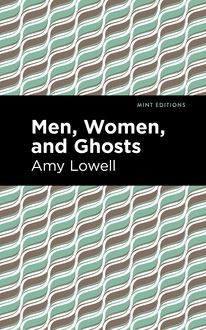-
 Univers
Univers
-
 Ebooks
Ebooks
-
 Livres audio
Livres audio
-
 Presse
Presse
-
 Podcasts
Podcasts
-
 BD
BD
-
 Documents
Documents
-
- Cours
- Révisions
- Ressources pédagogiques
- Sciences de l’éducation
- Manuels scolaires
- Langues
- Travaux de classe
- Annales de BEP
- Etudes supérieures
- Maternelle et primaire
- Fiches de lecture
- Orientation scolaire
- Méthodologie
- Corrigés de devoir
- Annales d’examens et concours
- Annales du bac
- Annales du brevet
- Rapports de stage
La lecture à portée de main
Vous pourrez modifier la taille du texte de cet ouvrage
Découvre YouScribe en t'inscrivant gratuitement
Je m'inscrisDécouvre YouScribe en t'inscrivant gratuitement
Je m'inscrisEn savoir plus
Vous pourrez modifier la taille du texte de cet ouvrage
En savoir plus

Description
Barrabas (1896) is a novel by Marie Corelli. Published at the height of Corelli’s career as one of the most successful writers of her generation, Barrabas combines Biblical fiction, spirituality, and tragedy to tell the story of the crucifixion from the perspective of the man who was spared. Due for reassessment by a modern audience, Marie Corelli’s work—which has inspired several adaptations for film and theater—is a must read for fans of nineteenth century fiction. “The heavy heat was almost insupportable, and a poisonous stench oozed up from the damp earth-floors of the Jewish prison, charging what little air was there with a deadly sense of suffocation. Down in the lowest dungeons complete darkness reigned, save in one of the cells allotted to the worst of criminals…” In one of these cells, the thief Barrabas awaits punishment for his crimes. Expecting death, he goes through phases of despair and rage, trying with all his might—and failing—to break his heavy chains. In another cell, Jesus himself awaits his trial. While their stories are well known, and despite the infamy associated with such names as Judas and Pontius Pilate, Corelli does her best to provide a unique angle on Jesus’ crucifixion, focusing on Barrabas, the man who was spared. Addressing philosophical, historical, and religious themes, Barrabas is a moving work of fiction which asks important questions about faith, guilt, and the meaning of Christian sacrifice. With a beautifully designed cover and professionally typeset manuscript, this edition of Marie Corelli’s Barrabas is a classic work of English historical fiction reimagined for modern readers.
Sujets
Informations
| Publié par | Mint Editions |
| Date de parution | 08 juin 2021 |
| Nombre de lectures | 0 |
| EAN13 | 9781513288666 |
| Langue | English |
Informations légales : prix de location à la page 0,0500€. Cette information est donnée uniquement à titre indicatif conformément à la législation en vigueur.
Extrait
Barabbas
Marie Corelli
Barabbas was first published in 1893.
This edition published by Mint Editions 2021.
ISBN 9781513283647 | E-ISBN 9781513288666
Published by Mint Editions®
minteditionbooks.com
Publishing Director: Jennifer Newens
Design & Production: Rachel Lopez Metzger
Project Manager: Micaela Clark
Typesetting: Westchester Publishing Services
“And they consulted how they might take Him, by subtilty .”
— Matthew XXVI. v. 4
“And they had then a notable prisoner called Barabbas.”
— Matthew XXVII. v. 16
“One named Barabbas which lay bound with them that had made insurrection with him.”
— Mark XV. v. 7
“Barabbas, who for a certain sedition made in the city and for murder was cast into prison.”
— Luke XXIII. v. 19
“Now Barabbas was a robber.”
— John XVIII. v. 40
C ONTENTS V OLUME I I II III IV V VI VII VIII IX X XI XII XIII XVI XV XVI XVII XVIII XIX XX XXI XXII XXIII XXIV V OLUME II I II III IV V VI VII VIII IX X XI XII XIII XIV XV XVI XVII XVIII XIX XX XXI XXII XXIII XXIV E PILOGUE
VOLUME I
I
A long sultry Syrian day was drawing near its close.
The heavy heat was almost insupportable, and a poisonous stench oozed up from the damp earth-floors of the Jewish prison, charging what little air there was with a deadly sense of suffocation. Down in the lowest dungeons complete darkness reigned, save in one of the cells allotted to the worst criminals; there, all through the slow hours a thin white line of light had persistently pierced the thick obscurity. It was the merest taper-flame reflection of the outside glowing Eastern sky, yet narrow as it was, it had vexed the eyes of the solitary prisoner on whom it fell, and he had turned from its hot flash with a savage curse and groan. Writhing back as far as his chains would allow, he covered his face with his manacled hands, pressing his eyelids down and gnawing his lips in restless fury till his mouth was bitter with the taste of his own blood. He was seized with such impotent rages often. He mentally fought against that poignant light-beam cutting like a sword through deep darkness,—he regarded it as a positive foe and daily source of nervous irritation. It marked for him the dismal time,—when it shone he knew it was day,—when it vanished, it was night. Otherwise, whether minutes or hours passed, he could not tell. His existence had merged into one protracted phase of dull suffering, varied with occasional fits of maniac ferocity which only relieved him for the moment and left him more stupefied and brutish than before. He had no particular consciousness of anything except of that needle-pointed ray, which falling obliquely upon him, dazzled and hurt his eyes. He could have endured the glare of the Syrian sun in the free and open country,—no one better than he could have turned a bold gaze to its amber flame radiating through the vast blue dome of ether,—but here and now, that thin shaft of brightness pouring slantwise through the narrow slit in the wall which alone served as an air-passage to the foul den in which he was caged, seemed an aggression and a mockery. He made querulous complaint of it, and, huddling on his bed of dirty straw in the furthest darkness, refreshed himself anew with curses. Against God and Fate and man, he railed in thick-throated blasphemies, twisting and turning from side to side, and clutching now and again in sheer ferocity at the straw on which he lay. He was alone, yet not altogether lonely, for close beside him where he crouched like a sullen beast in the corner there was a crossed grating of thick iron bars, the only air-aperture to the neighbouring cell, and through this there presently came a squat grimy hand. After feeling about for a while, this hand at last found and cautiously pulled the edge of his garment, and a faint hoarse voice called him by name:
“Barabbas!”
He turned with a swift savage movement that set his chains clanking dismally.
“What now?”
“They have forgotten us,” whined the voice. “Since early morning they have brought no food. I am perishing with hunger and thirst! Ah, I would I had never seen thy face, Barabbas, or had aught to do with thine evil plotting!”
Barabbas made no answer.
“Knowest thou not,” went on his invisible fellow-felon, “what season this is in the land?”
“How should I know!” retorted Barabbas disdainfully. “What are seasons to me? Is it a year or years since we were brought hither? If thou canst tell, I cannot.”
“’Tis eighteen months since thou didst slay the Pharisee,” replied his neighbour with marked malignity of accent,—“And had it not been for that wicked deed of thine, we might have missed this present wretchedness. Verily it is a marvel we have lived so long, for look you, now it is Passover.”
Barabbas uttered no word, either of surprise or interest.
“Rememberest thou the custom of the Feast?” pursued the speaker, “How that one captive chosen by the people shall be set at liberty? Would that it might be one of us, Barabbas! There were ten of our company,—ten as goodly men as ever were born in Jud æ a, always excepting thee. For thou wert mad for love, and a frenzied lover is the worst of fools!”
Barabbas still kept silence.
“If innocence hath any merit,” continued the voice behind the grating anxiously, “then perchance the choice will fall on me! For am I not an innocent man? The God of my fathers knoweth that my hands are not stained with the blood of the virtuous; I slew no Pharisee! A little gold was all I sought—”
“And didst thou not take it?” rejoined Barabbas suddenly and with scorn,—“Thou hypocrite! Didst thou not rob the Pharisee of all he had upon him even to his last jewel? Did not the guard capture thee in the very act of breaking with thy teeth the gold band from his arm ere the breath left his body? Cease thy prating! Thou art the worst thief in Jerusalem and thou knowest it!”
There was a sound behind the bars as of something between a grunt and a snarl, and the squat hand thrust itself through with vicious suddenness, to be as suddenly withdrawn. A pause ensued.
“No food all day!” moaned the voice again presently,—“And not a drop of water! Surely if they come not I shall die! I shall die in this darkness,—this dense pitch blackness”—and the faint accents grew feebly shrill with fear,—“Dost thou hear me, thou accursed Barabbas? I shall die!”
“And so there will be an end of thee,” returned Barabbas indifferently,—“And those who hoard gold in the city can sleep safely henceforth with open doors!”
Out came the ugly hand again, this time clenched, giving in its repulsive shape and expression a perfect idea of the villainous character of its unseen owner.
“Thou art a devil, Barabbas!” and the shadowy outline of a livid face and wild hair appeared for an instant against the grating,—“And I swear to thee I will live on, if only in the hope of seeing thee crucified!”
Barabbas held his peace, and dragged himself and his clanking chains away from his spiteful fellow-prisoner’s vicinity. Lifting his eyes distrustfully he peered upwards with a smarting sense of pain,—then heaved a deep sigh of relief as he saw that the burning arrowy line of white radiance no longer lit the cell. It had changed to a beam of soft and dusky crimson.
“Sunset!” he muttered. “How many times hath the sun gone down and risen since I beheld her last! This is the hour she loves,—she will go with her maidens to the well behind her father’s house, and underneath the palm-trees she will rest and rejoice, while I,—I,—O God of vengeance!—I may never look upon her face again. Eighteen months of torture! Eighteen months in this tomb and no hope of respite!”
With a savage gesture he rose and stood upright; his head almost touched the dungeon ceiling, and he stepped warily, the heavy fetters on his bare legs jangling harshly as he moved. Placing one foot on a notch in the wall he was able to bring his eyes easily on a level with the narrow aperture through which the warm fire-glow of the sunset fell, but there was little to be seen from such a point of observation. Only a square strip of dry uncultivated land belonging to the prison, and one solitary palm-tree lifting its crown of feathery leaves against the sky. He stared out for a moment, fancying he could discern the far-off hazy outline of the hills surrounding the city,—then, too faint with long fasting to retain his footing, he slipped back and returned to his former corner. There he sat, glowering darkly at the rose-light reflected on the floor. It partially illumined his own features, bringing into strong prominence his scowling brows and black resentful eyes,—it flashed a bright life-hue on his naked chest that heaved with the irregular and difficult breath of one who fights against long exhaustion and hunger-pain,—and it glittered with a sinister coppery tint on the massive iron gyves that bound his wrists together. He looked much more like a caged wild beast than a human being, with his matted hair and rough beard,—he was barely clothed, his only garment being a piece of sackcloth which was kept about his loins by means of a coarse black rope, twisted twice and loosely knotted. The heat in the cell was intense, yet he shivered now and then as he crouched in the stifling gloom, his knees drawn nearly up to his chin, and his shackled hands resting on his knees, while he stared with an owl-like pertinacity at the crimson sunbeam which with every second grew paler and dimmer. At first it had been an ardent red,—as red as the blood of a slain Pharisee, thought Barabbas with a dark smile,—but now it had waned to a delicate wavering pink like the fleeting blush of a fair woman,—and a great shudder seized him as this latter fancy crossed his sick and sullen mind. With a smothered cry he clenched his hands hard as though assailed by some unendurable physical pang.
“Judith—Judith!” he whispered, and yet again—“Judith!”
And, trembling violently, he turned and hid his face, pressing his fore
-
 Univers
Univers
-
 Ebooks
Ebooks
-
 Livres audio
Livres audio
-
 Presse
Presse
-
 Podcasts
Podcasts
-
 BD
BD
-
 Documents
Documents
-
Jeunesse
-
Littérature
-
Ressources professionnelles
-
Santé et bien-être
-
Savoirs
-
Education
-
Loisirs et hobbies
-
Art, musique et cinéma
-
Actualité et débat de société
-
Jeunesse
-
Littérature
-
Ressources professionnelles
-
Santé et bien-être
-
Savoirs
-
Education
-
Loisirs et hobbies
-
Art, musique et cinéma
-
Actualité et débat de société
-
Actualités
-
Lifestyle
-
Presse jeunesse
-
Presse professionnelle
-
Pratique
-
Presse sportive
-
Presse internationale
-
Culture & Médias
-
Action et Aventures
-
Science-fiction et Fantasy
-
Société
-
Jeunesse
-
Littérature
-
Ressources professionnelles
-
Santé et bien-être
-
Savoirs
-
Education
-
Loisirs et hobbies
-
Art, musique et cinéma
-
Actualité et débat de société
- Cours
- Révisions
- Ressources pédagogiques
- Sciences de l’éducation
- Manuels scolaires
- Langues
- Travaux de classe
- Annales de BEP
- Etudes supérieures
- Maternelle et primaire
- Fiches de lecture
- Orientation scolaire
- Méthodologie
- Corrigés de devoir
- Annales d’examens et concours
- Annales du bac
- Annales du brevet
- Rapports de stage












